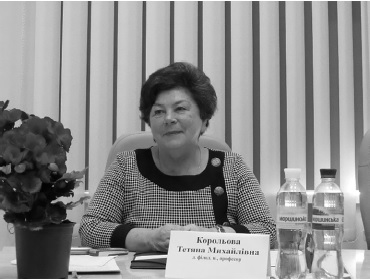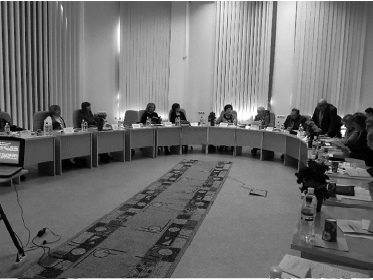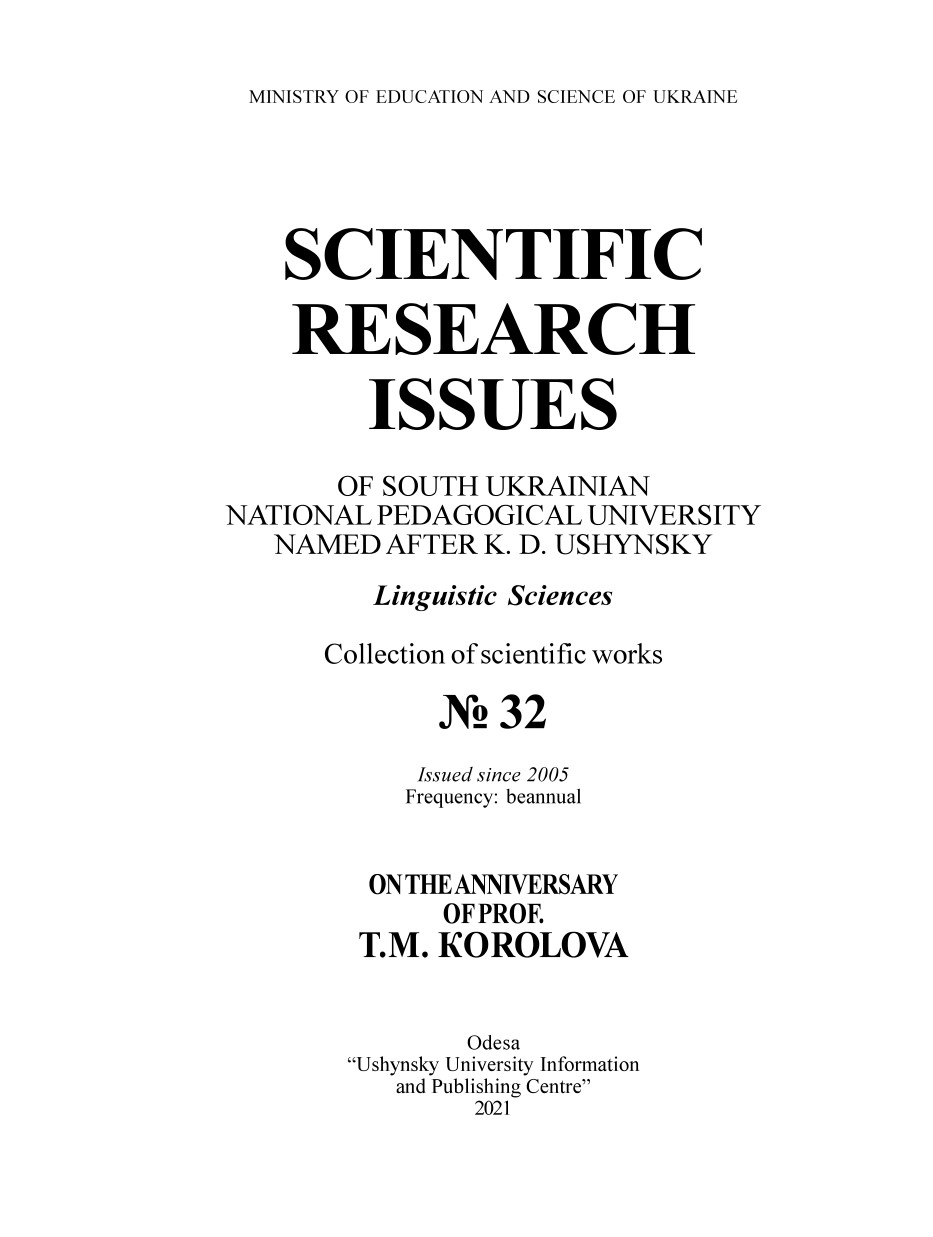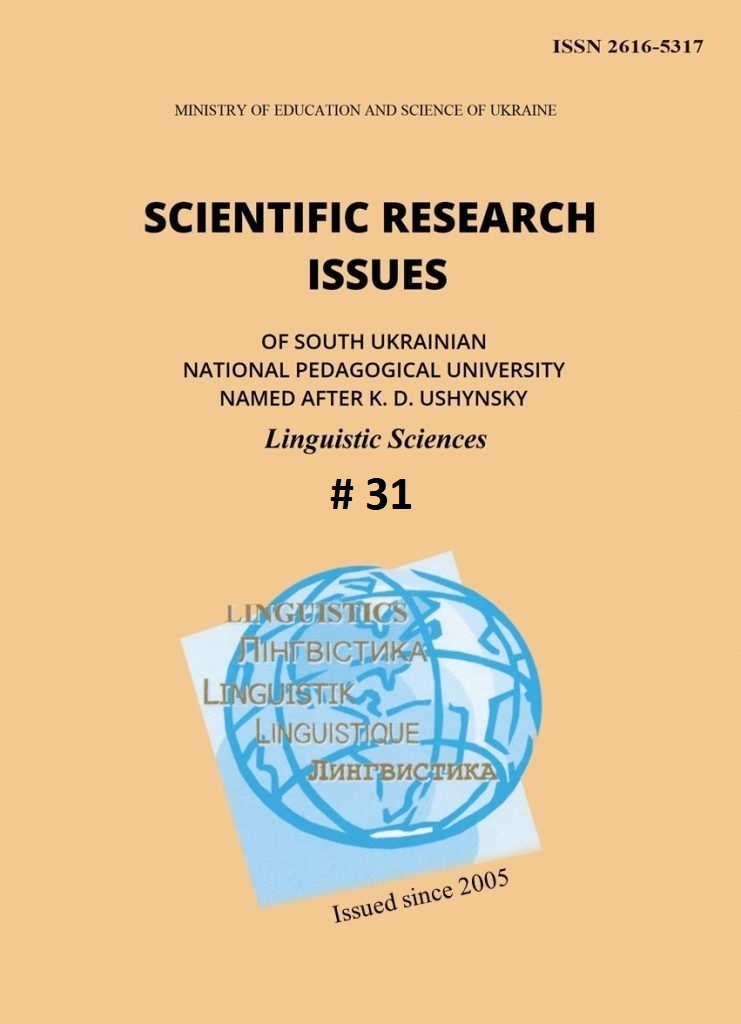Doctor of Science (Linguistics), Professor, Head of the Department
of Germanic and Slavonic Linguistics, Donbas State Teachers’ Training University, Sloviansk, Ukraine
e-mail: sdpunauka@ukr.net
ORCIDID: https://orcid.org/0000-0002-2394-4966
DOI: https://doi.org/10.24195/2616-5317-2021-32-3
Key words: history of the Ukrainian language, vocalism and consonantism relationship, phonological level, typology of the Slavonic languages.
P. H. Zhytetskyi’sbook «Очерк звуковой истории малорусского наречия» became a valuable contribution into Ukrainian and Slavonic studies. Zhytetskyi is credited with posing the problem of the relationship between vocalism and consonantism in the history of the Ukrainian language, and thus in the history of the Slavonic languages in general. Zhytetskyi’s thesis about «the poor» vocalism combining with «the rich» consonantism and vice versa in the Slavonic languages and in their history set the grounds of the historical typology of the Slavonic languages (on the phonological level) and proved to be really effective in the XXth ct. linguistics. It provided the principles of the Slavonic languages division into two types – a vocal and a consonant ones, which were interpreted both synchronically and diachronically (A. V. Isachenko, K. V. Horshkova, V. V. Ivanov, V. V. Kolesov).
Zhytetskyi reconstructed the systems of archytypes and the systems of phonetic rules with the similar mechanism (united by a common cause). This resulted in Zhytetskyi’s understanding of the Ukrainian phonetic system history as a chain of causally related phonetic processes on the level of the subsystems (vocalism and consonantism) and the sound categories (strong and weak, voiced and unvoiced, hard and soft consonants). Therefore, Zhytetskyi’s concept of the relationship between vocalism and consonantism in the history of the Ukrainian language has
retained its relevance in comparative and typological linguistiscs of the XX-th ct. – early XXIst ct.
REFERENCES
Glushchenko, V. A. (2001). P. H. Zhytetskyi i problemy fonolohichnoi typolohii slovianskykh mov[P. Zhytetskyi and the Issues of Phonological Typology of Slavonic Languages]. Istoriia ukrainskoi linhvistyky: zbirnyk naukovykh prats. Kyiv; Nizhyn: Nauka-servis, рр. 49–52. [inUkrainian]
Glushchenko, V. A. (1998). Pryntsypy porivnialno-istorychnoho doslidzhennia v
ukrainskomu i rosiiskomu movoznavstvi (70-i rr. ХІХ st. – 20-i rr. ХХ st.) [Principles of
Comparative-Historic Researches in Ukrainian and Russian Linguistics (70-s XIX ct. – 20-s XX ct.)]. Donetsk. [inUkrainian]
Glushchenko, V. A. (2020). U vytokiv istorychnoi typolohii slovianskykh mov: Pavlo
Zhytetskyi [In the Origins of the Historical Typology of the Slavonic Languages: Pavlo Zhytetskyi].
Teoretychni y prykladni problemy suchasnoi filolohii:zbirnyk naukovykh prats [za zahalnoiu redaktsiieiu profesora V. A. Glushchenka]. Sloviansk: Vydavnytstvo B. I. Matorina. Vyp. 10. Ch. 2, рр. 3–10. [in Ukrainian]
Gorshkova, K. V. (1963). Sootnoshenie vokalizma i konsonantizma v istorii drevnerusskogo yazyika [Correlationof Vocalism and Consonantism in the History of the Old Russian Language].
Slavyanskaya filologiya. Moskva: Izdatelstvo Moskovskogo universiteta. Vyip. 5, рр. 40–53. [inRussian]
Zhitetskiy, P. I. (1876). Ocherk zvukovoy istorii malorusskogo narechiya [Essay on the Sound History of Ukrainian Language]. Kiev.[in Russian]
Zhuravlуоv, V. K. (1987). Nauka o praslavyanskomyazyike: evolyutsiyaidey,
ponyatiyimetodov [The Studies in the Proto-Slavic language: evolution of ideas, concepts and methods]. BirnbaumX. Praslavyanskiy yazyik. Dostizheniya i problemy ivegorekonstruktsii. Moskva: Progress, рр. 453–493.[in Russian]
Ivanov, V. V. (1990). Istoricheskaya grammatika russkogo yazyika [Historical Grammar of the RussianLanguage]. 3-e izd. Moskva: Prosveschenie.[in Russian]
Isachenko, A. V. (1963). Opyit tipologicheskogo analiza slavyanskih yazyikov [Essay on the Typological Analysis of the Slavonic Languages]. Novoe v lingvistike. Moskva: Izdatelstvo inostrannoy literaturyi, 1963. Vyip. 3, рр. 106–121. [in Russian]
Kolesov,V. V. (1980). Istoricheskayafonetikarusskogoyazyika [Historical Phonetics of the Russian Language]. Moskva: Vyisshaya shkola. [in Russian]
Kolosov,M. A. (1878). Obzor zvukovyih i formalnyih osobennostey narodnogo russkogo yazyika [Review of the Sound and Formal Features of the Folk Russian Language]. Varshava. [inRussian]
Plachynda, V. P. (1987). Pavlo Hnatovych Zhytetskyi. Kyiv: Naukova dumka. [in Ukrainian] Potebnya,A. A. (1876). Kistoriizvukovrusskogoyazyika [On theHistory of the Souds of the Russian Language]. Voronezh. Ch. 1. [in Russian]





